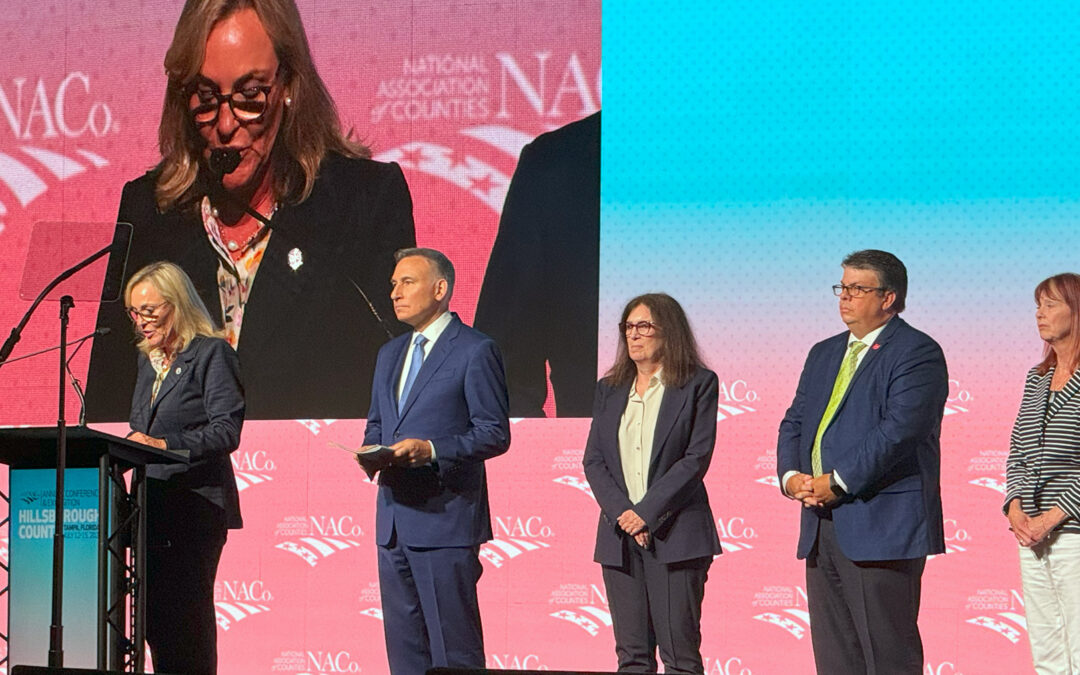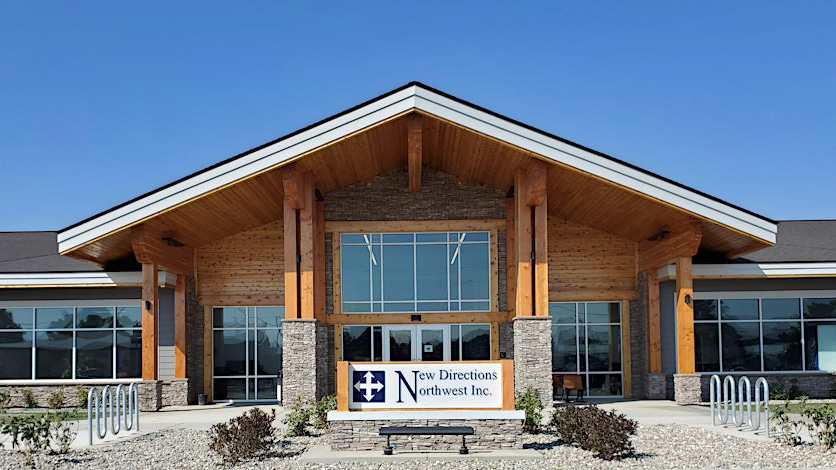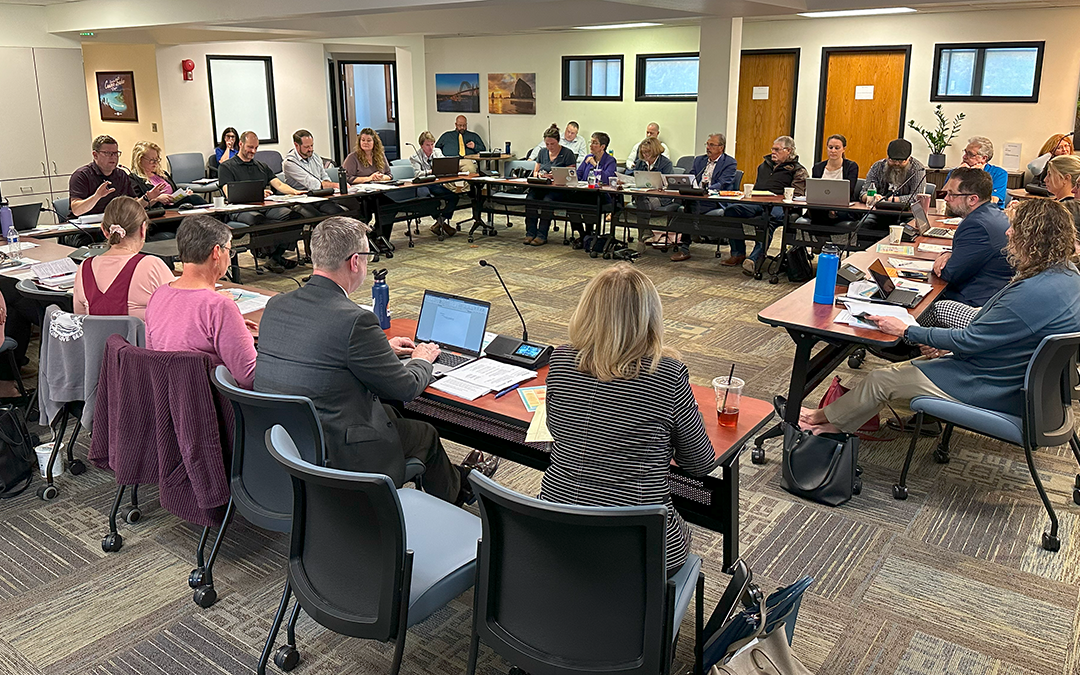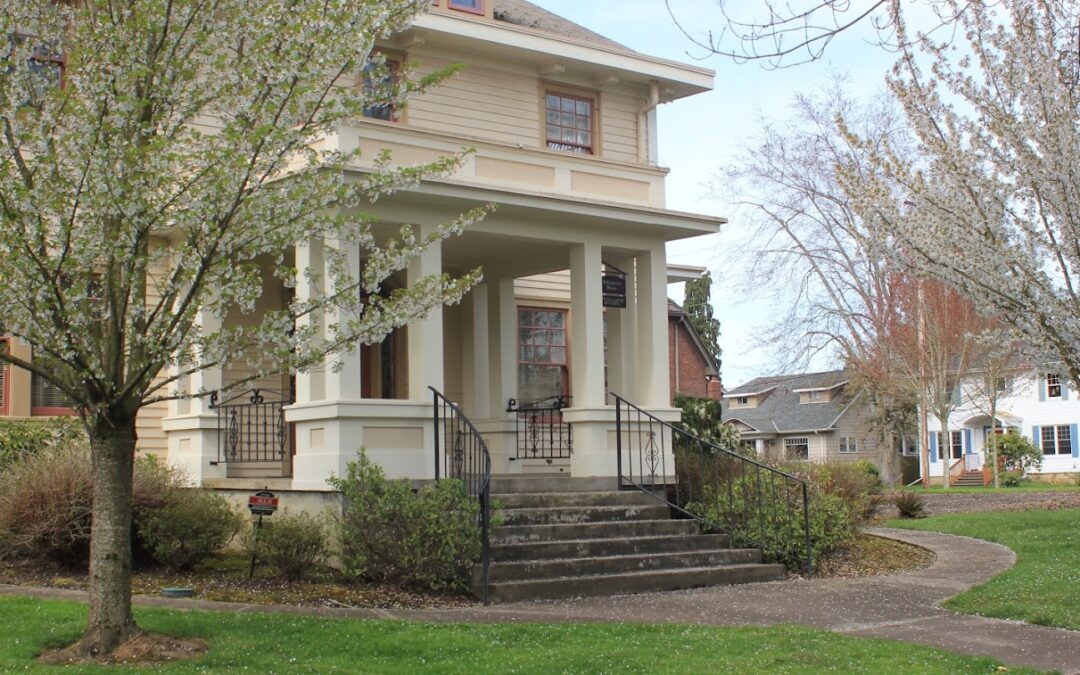
Jul 25, 2024 | Health & Human Services
NACo commission’s federal-county call to action
The NACo Commission on Mental Health and Wellbeing unveiled its final report at the annual conference in Tampa, Fla. Association of Oregon Counties (AOC) Executive Director Gina Nikkel served as a member of the commission. The report’s four federal policy priorities (plus two) align with AOC’s 2025 state legislative priorities and would increase access to quality local behavioral health services in every Oregon county. The report concludes with a matching call to action for county policy makers, outlining steps to lay the necessary groundwork in anticipation of successful advocacy in Washington, D.C.
Polk County Public Health Director Dr. Naomi Adeline-Biggs named new state public health division director
Oregon Health Authority (OHA) Director Sejal Hathi announced her appointment of Dr. Naomi Adeline-Biggs as OHA’s Public Health Division Director, effective Aug. 19. Along with an impressive history of practice and leadership abroad, Adeline-Biggs is the sitting chair of the Oregon Coalition of Local Health Officials. She was also a dynamic local public health presenter at the most recent AOC County College held in 2023.
The Oregon Criminal Justice Commission (CJC) publishes summary of county deflection program applications
In July, the CJC released a comprehensive summary of county deflection program applications. Twenty-seven Oregon counties will be standing up a new program, either individually or in partnership with a neighboring county. Marion County will use the new funds to bolster its deflection program which began in 2018. The new programs will go live on different schedules, starting in July and going through January 2025. Additional CJC materials on the deflection program, including a FAQ, can be found on the program webpage.
Contributed by: Jessica Pratt | Legislative Affairs Manager

Jul 24, 2024 | County News, Health & Human Services
Baker County is one of several Oregon counties planning on developing a Law Enforcement Assisted Diversion (LEAD®) model deflection program in response to the new drug related misdemeanor that takes effect on Sept. 1. The Oregon Criminal Justice Commission allocated $150,000 to support Baker County as they develop a deflection program from the ground up.
The Association of Oregon Counties (AOC) was successful in advocating for maximum flexibility in how a local deflection program is administered and operated, allowing the required local partners to make the best use of their existing resources and processes. Baker County is collaborating with the Baker County Sheriff’s Office, the Baker City Police Department, Baker County Circuit Court, the Baker County District Attorney’s Office, and a local treatment provider to develop their deflection program, which will be run out of the sheriff’s office.
Baker County Chair Shane Alderson said the program will be up and running by September. “When the state legislature asked for counties to opt in early, I wanted to show support for the amendments to HB 4002, and I knew I had the right people,” Alderson said.
Baker County will use the services of a local treatment provider, New Directions Northwest (NDN), to offer substance use disorder assessments and referrals for individuals referred to the deflection program. As a Behavioral Health Resource Network provider, NDN offers recovery focused peer support programs, behavioral health screenings, and low barrier substance use disorder treatment.
According to NDN Training, Recruitment, and Special Projects Coordinator Claudia Wilcox, “the number of new certified alcohol and drug counselors in Eastern Oregon counties has decreased over the last several years while service needs have increased.”
In response, NDN recently launched the Eastern Oregon Behavioral Health Training Center to increase access to behavioral health services throughout Eastern Oregon by training individuals to become qualified behavioral health providers. The training center is currently on track to become the Eastern Oregon training hub for Oregon Health Authority (OHA) certified peer support specialists in adult addictions as well as certified alcohol and drug counselors.
Obtaining behavioral health provider training usually takes two years, with multi day courses often held in more populated areas. For rural Eastern Oregon residents, travel to these trainings involves significant time and added costs for lodging, per diem, and fuel, making it more expensive than for metropolitan counterparts. Limited budgets and workforce availability in Eastern Oregon further restrict attendance.
To address these financial barriers, the Greater Oregon Behavioral Health (GOBHI) awarded grants to the training center to provide stipends for travel, lodging, per diem, and childcare, as well as tuition scholarships. The training center’s central location in Eastern Oregon allows most individuals to commute on the same day as the training.
By the end of 2024 the training center’s goal is to see 30 new Certified Recovery Mentors and 36 new Certified Alcohol and Drug Counselors in the Eastern Oregon region. Courses are being taught onsite at the NDN Outpatient Facility in Baker County. In March, NDN purchased the former Blue Mountain Community College building in Baker City for use as a future home for the training center. The facility is currently being remodeled and will open soon.
Alderson says the county has hired a program coordinator, and is currently working on training for law enforcement and behavioral health providers, operational procedures, and a tracking system. “We have an outstanding team,” he said, “and I’m very proud of how everyone has stepped up.”
Contributed by: Erin Good | Communications Coordinator
This is the third article in AOC’s series on counties setting up deflection programs. Read previous articles:

Mar 26, 2024 | AOC Advocacy, Health & Human Services
Addressing Oregon’s opioid crisis and reforming Ballot Measure 110 were among top priorities for legislators during the 2024 short session. HB 4002 and its companion funding bill, HB 5204, passed the legislature overwhelmingly with bipartisan, bicameral support, instituting a variety of new programs and policies. Among those new programs is the Oregon Behavioral Health Deflection Program, established at the Criminal Justice Commission (CJC) to coincide with the newly created misdemeanor for possession of a controlled substance.
The new misdemeanor, coupled with the deflection program, is intended to re-establish local partnerships between law enforcement and the behavioral health safety net to effectively connect individuals to treatment and recovery while minimizing costly interactions with the justice system.
Twenty-three Oregon counties opted in to receive fast-tracked funding to stand up deflection programs. These counties are encouraged to establish their deflection programs quickly in preparation of the new misdemeanor’s effective date of Sept. 1. Initial funds may also be used as planning grants for counties needing time to explore programmatic options. The legislature also allocated funding through the end of the current biennium to support the coordination and case management of deflection program participants in each county and federally recognized Oregon tribe, which means every interested county government still has the opportunity to draw down their formula funding to set up a program.
The Association of Oregon Counties (AOC) was successful in advocating for maximum flexibility in how a local deflection program is administered and operated, allowing the required local partners (law enforcement, the district attorney, county government, the Community Mental Health Program, and a Behavioral Health Network provider) to make the best use of their existing resources and processes.
Over 150 county leaders attended AOC’s first deflection program summit on March 18, designed to help county commissioners and local partners understand the CJC’s program requirements and timeline, as well as equipping county leaders to begin formulating their local implementation plans. The summit’s plenary and regional break-out session recordings and materials are available in the AOC archive.
AOC will continue to convene the CJC, county commissioners, and local deflection partners through the summer and fall to assist in program planning and implementation. Please contact jpratt@oregoncounties.org or jlewis-goff@oregoncounties.org to receive those meeting notifications.
Contributed by: Legislative Affairs Managers Jessica Pratt and Jen Lewis-Goff

Aug 28, 2023 | AOC News
Oregon is receiving millions of dollars from a federal grant program to help reduce gun violence, and the state is seeking a county representative to help decide how to spend the money.
The state is set to receive at least $7.5M from the federal Byrne State Crisis Intervention Program through 2026, which can be used to fund a variety of types of programs.
Oregon’s Criminal Justice Commission (CJC) is convening an advisory board to help them determine how to use the grant money, and they are hoping to recruit a county leader to serve on the board. The CJC anticipates the board will meet for about 90 minutes on a monthly basis.
Applications can be submitted here, and questions can be directed to CJC Senior Policy Analyst Bridget Budbill.
Contributed by: Michael Burdick | Legislative Affairs Manager




